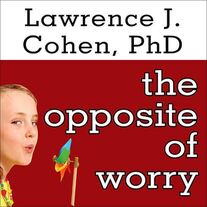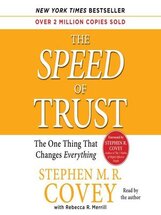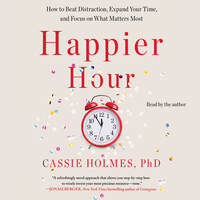 I recently finished reading The Opposite of Worry: The Playful Parenting Approach to Childhood Anxieties and Fears by Lawrence Cohen, and I enjoyed it and learned a lot. It discusses anxiety, perfectionism, control, and many other related topics as they affect both kids and parents. I really liked the focus on playfulness, roughhousing, and listening/empathy. The "second chicken" analogy made a lot of sense to me -- how kids look to adults to decide if they should worry or not. The specific stories and cases were helpful to read as well. I definitely recommend this to anyone who has faced these issues themselves or has kids that do. Below are some of my notes and takeaways.
0 Comments
 A long time ago, I read The 7 Habits of Highly Effective People by Stephen R. Covey. It's one of my favorite and one of the most impactful non-fiction books I have ever read. Someone recently recommended to me The Speed of Trust: The One Thing That Changes Everything by Stephen M.R. Covey, the son of the author of the first book, and I just finished reading it. The concept of trust is something I have been thinking about a lot (how it's earned, how quickly to grant it, etc.), so I enjoyed reading a full book about the topic. I found the book interesting and learned several things from it. I enjoyed the perspective of how the level of trust can either create dividends or taxes (in a relationship, organization, or society) and the breakdown of how trust is created (character and competence) and some of the sub-components and behaviors of each. I liked how it methodically broke things down. I don't think it was as impactful for me today as the first book was for me many years ago, but I still found it interesting and useful. Some of my takeaways and notes are below.  I recently read Happier Hour: How to Beat Distraction, Expand Your Time, and Focus on What Matters Most by Cassie Holmes, and I really liked it. My wife and I both read it together and both learned a lot. Cassie is a professor at UCLA Anderson where I got my MBA, and she's also a parent at the school my son attends. It was so neat to hear about her life experiences and all the lessons she drew from them and how she solved various problems as I could relate to a lot of the same situations. I found her suggested exercises really helpful too. Some specific things I started doing more consistently after reading this are exercising daily 30 minutes and working to appreciate each moment by remembering how few of them are left in my life. Below are some of my notes and takeaways on the book. I definitely recommend this book to anyone who wants to figure out how to use their time more wisely or for anyone who feels time poor (i.e., any parent). |
Archives
February 2023
Categories
All
Subscribe |
 RSS Feed
RSS Feed

